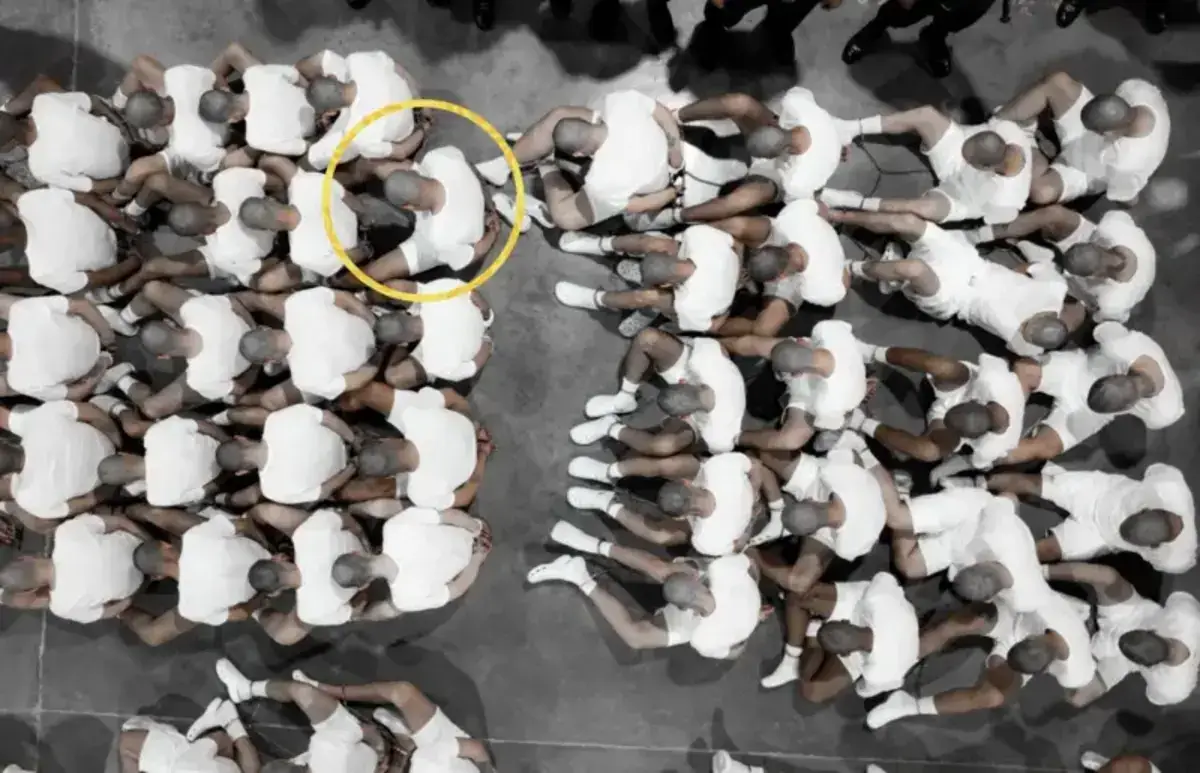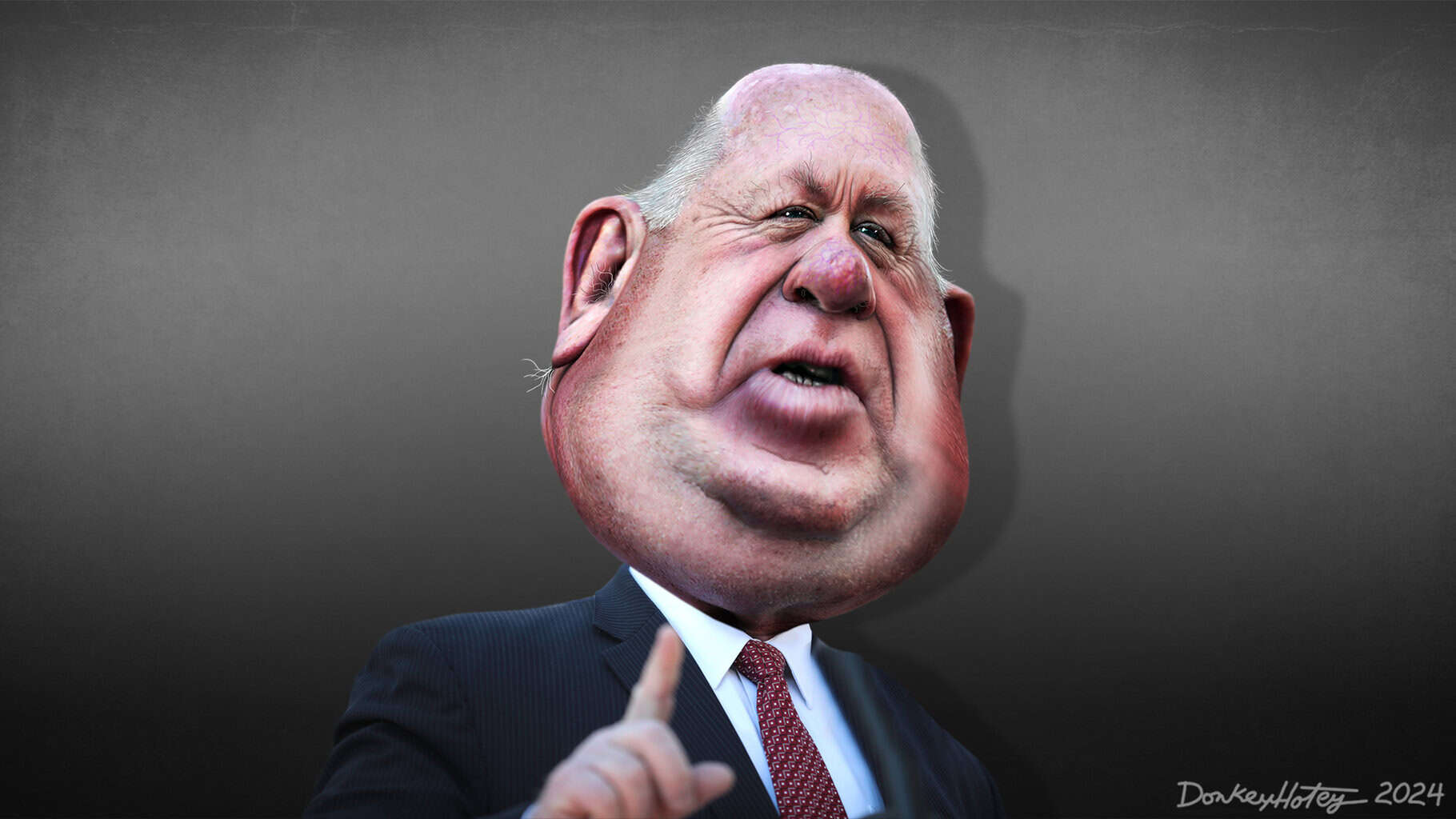Last weekend, late at night, President Trump invoked the Alien Enemies Act of 1798, meant to be used during a time of war to quickly remove citizens of the enemy country from the United States. ICE quickly rounded up Venezuelans in detention centers with tattoos and put them on a plane to a prison in El Salvador.
Update: Another innocent man was recently discovered—A Maryland father from El Salvador that a judge had granted protection from being deported to El Salvador due to his asylum claim: he was being targeted by gangs. And they sent him to a prison full of gang members in El Salvador! Luckily, a judge ordered the Trump Administration to bring him back to the U.S. by 11:59 PM on Monday, April 7, 2025. I wish the rest of these guys could hitch a ride back, too!
That might not be how ICE determined who would be on that flight, but innocent men were swept up simply because they had tattoos.
The President of El Salvador, Nayib Bukele, released a professionally produced video showing the men arriving on the plane to the Centro de Confinamiento del Terrorismo, or CECOT—terrorists and the most dangerous criminals are locked up in this prison in El Salvador.
They wore shackles on their hands and feet, and were led into the prison by the neck by guards or officers wearing black masks that covered part of their faces. Once inside, the Venezuelan men had their heads shaved.

They were then forced to sit on the floor in rows to create a spectacle out of their arrival.
The men are housed 80 to a cell. The beds are metal—no mattress, blanket, or pillow.
A small bucket is the bathroom for all 80 men.
The mother of one of the innocent men on that flight found out he was in El Salvador from the media’s reporting and the video created by Bukele.
She was able to pick him out of the group of prisoners sitting on the floor when she recognized a tattoo on his arm and his build.

A list containing the name of every man sent to El Salvador was released to the press recently.
Several men have been identified by family members or immigration lawyers who are saying they had nothing to do with Tren De Aragua or any other gang.
They also hadn’t committed any crimes in Venezuela or since they’d been living in the U.S.
In a Sunday news interview, Tom Homan, Trump’s border czar who is in charge of the mass deportations, admitted that some of the men had no criminal history, claiming that ‘not all gang members have one.’

He couldn’t provide any evidence or describe any proof they had that all 238 men sent to El Salvador were gang members.
There was no due process, but he claims it was determined that they were gang members based on statements from ICE, their tattoos, or from looking at their social media accounts.
Tattoos were one thing all of the men have in common. Officials claimed certain tattoos indicated membership in Tren De Aragua, but these tattoos are very common in South America and the U.S.
Tattoos of: a crown, a rose, and/or a rosary were considered proof of gang affiliation.
One of the innocent men had a tattoo of a crown in memory of his grandmother with the date she died along the base of the crown.
Before I move onto reporting about the innocent men sent to this prison in El Salvador, I just want to share how much I cried as I heard a reporter describe what these men have already endured at this “hell on Earth.”
One man sobbed, prayed and called out for his mother as they were shaving his head.

A reporter who was filming the arrival said he could tell that some of the men were not supposed to be there.
He talked about the man who cried being slapped in the face repeatedly by guards.
Two of the innocent men—a barber and a professional makeup artist—came to the U.S. to escape the dictatorship in Venezuela and to make a life for themselves in America.
That’s what had me crying the most—the thought of these young men coming to America to pursue their dreams only to find themselves in a terrorist prison of another country, being tortured, knowing they will be there for the rest of their lives.
Here I go again! 😭
Here is the Arizona Mirror with reporting on the 238 men swept up and disappeared to El Salvador without the opportunity to prove their innocence.
Barber, Makeup Artist, and Professional Soccer Player Among Group Sent to Prison in El Salvador
In new court briefings Thursday, attorneys for several Venezuelan immigrants say their clients either had no criminal record or had cases before an immigration judge when they were deported under the Trump administration’s wartime authority — despite a federal judge ordering the return of the flights to the United States.
Attorneys for four men who were sent to a notorious maximum security prison in El Salvador said their clients had two things in common: They were accused of being members of the Tren de Aragua gang under the Alien Enemies Act of 1798 the president invoked, and they all had tattoos.
Among those four men deported were a professional soccer player; a father whose son is a U.S. citizen; a political activist who protested the Maduro regime in Venezuela; and an asylum seeker.
238 Venezuelans on Flights
Last week, President Donald Trump invoked the Alien Enemies Act, which allowed the rapid deportation of Venezuelan nationals 14 and older who are suspected members of the Tren de Aragua gang.
“If the President can label any group as enemy aliens under the Act, and that designation is unreviewable, then there is no limit on who can be sent to a prison in El Salvador, or any limit on how long they will remain there,” the American Civil Liberties Union, which originally filed the suit, wrote in recent court briefings.
The White House confirmed 238 Venezuelans were deported and flown to El Salvador, but is refusing to answer detailed questions about the timing of the March 15 flights, after a federal judge placed a temporary restraining order that same day on use of the wartime authority.
Thursday’s filings also included sworn statements from four attorneys who had clients initially on the deportation flights heading to the Salvadoran prison, but were removed before the plane left the U.S.
In separate accounts, the four men who disembarked the plane and questioned what was happening said they were told by an immigration official they had “won the lottery” because they were not being deported that day.
The eight exhibits by attorneys came just before a Friday hearing before U.S. District Court Judge James Emanuel Boasberg in the District of Columbia, who is pressing the government for more details on the timing of the two deportation flights.
Hard Labor
The prison in El Salvador that the men were taken to, known as the Centro de Confinamiento del Terrorismo, or CECOT, has concerned human rights groups like the Human Rights Watch.
The president of El Salvador, Nayib Bukele, wrote on social media that the men deported from the U.S. to his country would perform hard labor for up to a year, potentially longer.
White House press secretary Karoline Leavitt said the U.S. government paid El Salvador $6 million to detain the men.
In a court filing with the ACLU, Juanita Goebertus, the director of the Americas Division of Human Rights Watch, said that “the Salvadoran government has described people held in CECOT as ‘terrorists,’ and has said that they ‘will never leave.’”
“Human Rights Watch is not aware of any detainees who have been released from that prison,” she said.
Tattoos of Crowns, Rosary, Flowers
One of the men taken to CECOT is Jerce Reyes Barrios, a professional soccer player who marched in two political demonstrations protesting the regime of Venezuelan President Nicolás Maduro, his attorney, Linette Tobin, wrote.
Barrios came to the U.S. in 2024 using the CBP One app, a tool the Biden administration used to help migrants make appointments with asylum officers.
The Trump administration shut down the app on the president’s first day in office and have repurposed the app as a self-deportation tool.
Tobin said that Barrios, who had no criminal record in the U.S. or Venezuela, applied for asylum and had a court hearing in April.
She said U.S. Immigration and Customs Enforcement accused Barrios of belonging to the Tren de Aragua gang because of his tattoos. He has a tattoo on his arm with a soccer ball and a crown on top, with a rosary.
“DHS alleges that this tattoo is proof of gang membership,” Tobin said. “In reality, he chose this tattoo, because it is similar to the logo for his favorite soccer team, Real Madrid.”
Another attorney, Austin Thierry, said his client, E.V., fled Venezuela after being tortured by officials for participating in a protest against the regime.
Since E.V. has been in ICE detention, “his partner and infant son have struggled to meet their expenses and maintain housing,” Thierry said, adding that his client’s son is a U.S. citizen.
“EV has various tattoos, such as tattoos of anime, flowers, and animals, that he chose to get for personal and artistic reasons,” Thierry said.
“E.V. also has a tattoo of a crown, which may be why ICE falsely accused him of gang membership. However, this crown is not related to Tren de Aragua but rather, a tribute to his grandmother whose date of death appears at the base of the crown.”
Asylum Cases Pending
Another immigration attorney, Katherine Kim, said her client, referred to as L.G., had a pending asylum case and that ICE alleged he was associated with Tren de Aragua.
She said L.G. denied being a member and has three tattoos.
“One is a rosary, the other is his partner’s name, and the third is a rose and a clock,” she said. “None of these tattoos are related to Tren de Aragua gang membership or membership in any other gang.”
Immigration attorney Osvaldo Caro-Cruz, said his client, JABV, fled Venezuela due to political persecution and applied for asylum through the CBP One app.
“His tattoos are a Rose, a Clock and a Crown with his son’s name on it,” Caro-Cruz wrote in a court filing. “These are common in Venezuela and bear no exclusive association with gang affiliation.”
Caro-Cruz said he was able to determine that JABV was deported to El Salvador because the president, Bukele, published a video and JABV’s brother recognized him.
Tattoo Artist
Another filing was by Solanyer Michell Sarabia Gonzalez, who said he fears his younger brother was sent to the prison in El Salvador.
Both brothers have asylum cases pending. When they went to their ICE check-in appointment, the younger one, 19-year-old Anyelo Jose Sarabia, was asked about his hand tattoo by an immigration official and later detained.
Sabaria has no criminal record and is a tattoo artist.
Gonzalez said he can no longer find his brother on the ICE detainee locator.
“I am extremely concerned about the health and safety of my little brother,” he wrote in his court filing.




